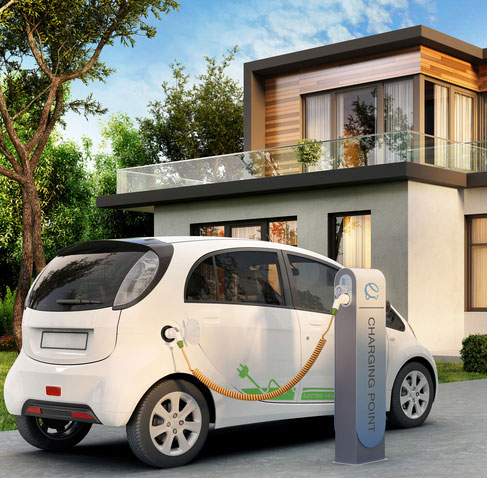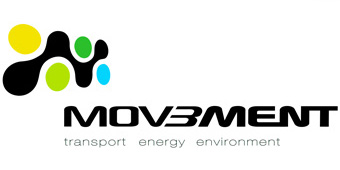Why Choose Us
If you operate vehicles, pay for fuel, care about the environment, or you’re just confused about what the future of mobility looks like, we can help.
Transport is a complex business. Understanding the hidden links between fleet costs, vehicle design, energy, environment, policy and regulation can be like doing a puzzle without the big picture or all the pieces.
We can help you find or figure out the missing pieces
At MOV3MENT, we differentiate (and define) ourselves by three things
The common bond for all of us at MOV3MENT are three guiding principles: Quality, Integrity, Purpose.

QUALITY reflects our dealings with people (through respect, honesty, transparency and reliability) and pride in our work (where we strive to deliver accuracy, insight, and above all utility)
INTEGRITY is central to our work. We are independent thinkers, providing fact-based research and professional advice. We tell it like it is – not how some might wish it to be.
PURPOSE: We try to leave the world a better place through what we do and how we do it. It’s not a cliché, we lead by example:
- All the electricity that powers our office activities comes from the sun
- We avoid unnecessary travel, use public transport when possible, and offset all our remaining travel emissions (and when the right one comes along, we’ll use electric vehicles so our motoring can also be solar powered)
- We only throw out what can’t be repurposed, recycled or composted.
We’re not generalists. We know we operate in a niche, but we love that niche and we do it well. We have deep knowledge in our sector; and most importantly we also understand the links and implications for the big picture. Energy, fuels, emissions, efficiency, and pollution can sometimes be competing forces – addressing one area creates problems with another.
For example, switching trucks from diesel to natural gas CAN reduce fuel costs. Anyone can calculate a simple fuel saving; but in many cases other factors are just as important to business or to government.

- How much fuel needs to be used to pay back the switching costs, and how quickly?
- The vehicle won’t travel as far on a full tank – how far will it go, and where can it refuel?
- All the exhaust emissions will change – how much depends on which one of four engine technologies is used.
- If the engine or fuel system is modified, there may be compliance implications that put the vehicle off the road.
- Depending on where it’s driven, there may be rebates or other incentives available.
- Are there better or cheaper options?
That’s just one example. We work across all fuels and all vehicles – including electric. We get the detail. So we can help devise the right strategy and inform government policy to maximise the benefits and avoid the traps.

A plan by itself is not much use if it’s based on the wrong information – or worse, if you’re heading in the wrong direction. When it comes to fuels and vehicles, we understand the current state of play and which forces will shape the future market. Our objective is not to come up with just any idea, but to get to the best solution for your organisation or your jurisdiction, and your overall objectives.
Working across all energy types, all transport modes and all vehicles, we understand the relationships between transport and other sectors. We can’t predict the future, but we know what forces will shape it. These forces include increasing regulation, autonomous (self-driving) vehicle technology, a rapid shift to electric and connected vehicles, and (ultimately) renewable energy for transport.
We also understand there are hurdles, humps and humans involved – so the pathway may not be straight.
At MOV3MENT, we differentiate (and define) ourselves by three things
The common bond for all of us at MOV3MENT are three guiding principles: Quality, Integrity, Purpose.
QUALITY reflects our dealings with people (through respect, honesty, transparency and reliability) and pride in our work (where we strive to deliver accuracy, insight, and above all utility)
INTEGRITY is central to our work. We are independent thinkers, providing fact-based research and professional advice. We tell it like it is – not how some might wish it to be.
PURPOSE: We try to leave the world a better place through what we do and how we do it. It’s not a cliché, we lead by example:
- All the electricity that powers our office activities comes from the sun
- We avoid unnecessary travel, use public transport when possible, and offset all our remaining travel emissions (and when the right one comes along, we’ll use electric vehicles so our motoring can also be solar powered)
- We only throw out what can’t be repurposed, recycled or composted.
We’re not generalists. We know we operate in a niche, but we love that niche and we do it well. We have deep knowledge in our sector; and most importantly we also understand the links and implications for the big picture. Energy, fuels, emissions, efficiency, and pollution can sometimes be competing forces – addressing one area creates problems with another.
For example, switching trucks from diesel to natural gas CAN reduce fuel costs. Anyone can calculate a simple fuel saving; but in many cases other factors are just as important to business or to government.
- How much fuel needs to be used to pay back the switching costs, and how quickly?
- The vehicle won’t travel as far on a full tank – how far will it go, and where can it refuel?
- All the exhaust emissions will change – how much depends on which one of four engine technologies is used.
- If the engine or fuel system is modified, there may be compliance implications that put the vehicle off the road.
- Depending on where it’s driven, there may be rebates or other incentives available.
- Are there better or cheaper options?
That’s just one example. We work across all fuels and all vehicles – including electric. We get the detail. So we can help devise the right strategy and inform government policy to maximise the benefits and avoid the traps.
A plan by itself is not much use if it’s based on the wrong information – or worse, if you’re heading in the wrong direction. When it comes to fuels and vehicles, we understand the current state of play and which forces will shape the future market. Our objective is not to come up with just any idea, but to get to the best solution for your organisation or your jurisdiction, and your overall objectives.
Working across all energy types, all transport modes and all vehicles, we understand the relationships between transport and other sectors. We can’t predict the future, but we know what forces will shape it. These forces include increasing regulation, autonomous (self-driving) vehicle technology, a rapid shift to electric and connected vehicles, and (ultimately) renewable energy for transport.
We also understand there are hurdles, humps and humans involved – so the pathway may not be straight.




